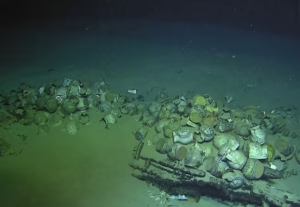In excavations near the ancient city of Doclea, located just outside Montenegro’s capital Podgorica, archaeologists have uncovered a stone tomb belonging to an elite Roman woman buried around 1,700 years ago, filled with priceless artifacts.
An exciting archaeological discovery has emerged from Montenegro. Systematic excavations in the Roman-era settlement of Doclea, just a few kilometers from Podgorica, have revealed an extraordinary tomb dating to the 4th century AD.
The excavations have been carried out for the past three years by the Center for Conservation and Archaeology of Montenegro. Under the leadership of chief archaeologist Miloš Živanović, this year’s campaign brought to light one of the most striking burials discovered so far. The tomb, found in the western necropolis, is believed to belong to a Roman woman of high social status.
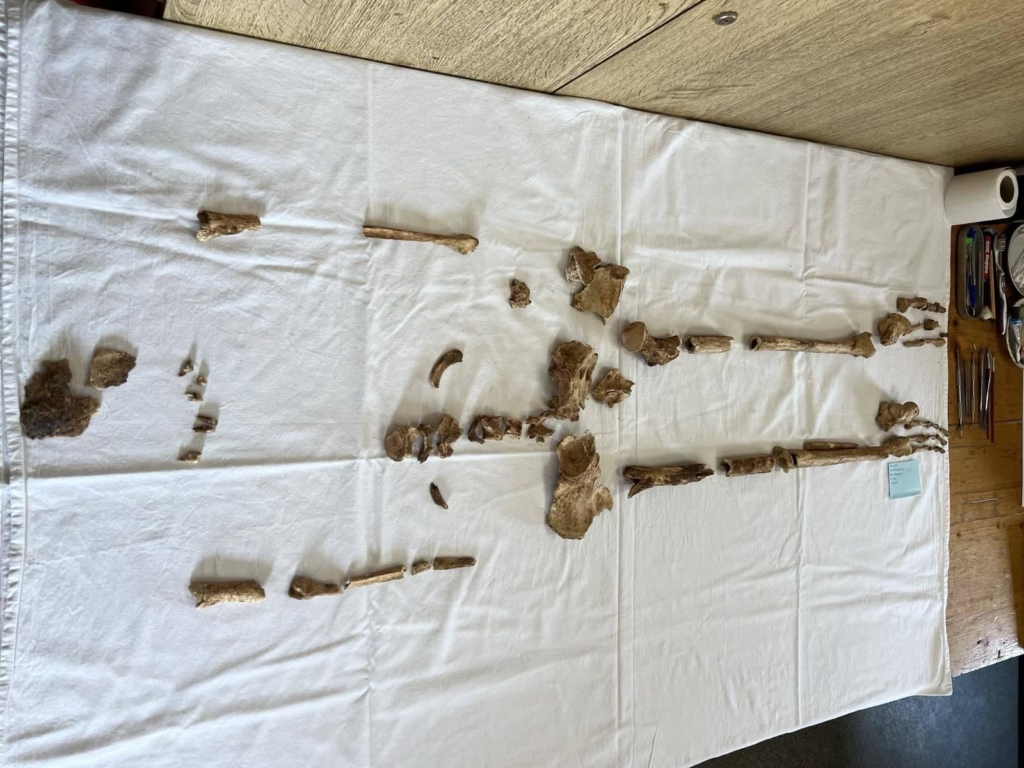
Dazzling Wealth of Grave Goods
Among the items found inside the tomb were gold earrings, a necklace, bone needles, iron spatulas, a bone pyxis (cosmetic container), a set of game pieces and dice, and eight glass vessels. These luxurious grave goods reflect not only the woman’s elite status but also highlight Doclea’s significance within the Roman province of Dalmatia.
A Rare Diatreta Find: The Pinnacle of Ancient Glass Art
One of the most remarkable discoveries was a diatreta, a type of elaborately crafted Roman glass vessel. Known for their intricate net-like exterior decoration, diatreta are considered masterpieces of ancient glassmaking.
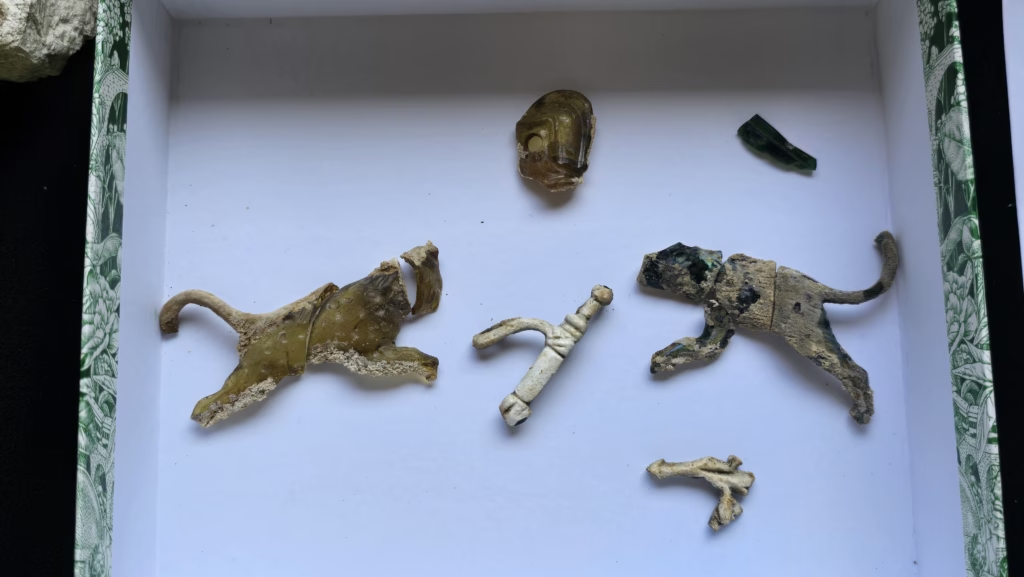
This particular diatreta features figural decoration, depicting a venator (wild beast hunter) engaged in combat with leopards—a scene never before documented in this medium. Archaeologists have emphasized the uniqueness of this representation, calling it an exceptional find.
Chief archaeologist Miloš Živanović noted, “This kind of diatreta not only showcases extraordinary technical skill but also reflects the artistic refinement of the period. It’s a testament to the cultural richness of Doclea and the entire region during the Roman era.”
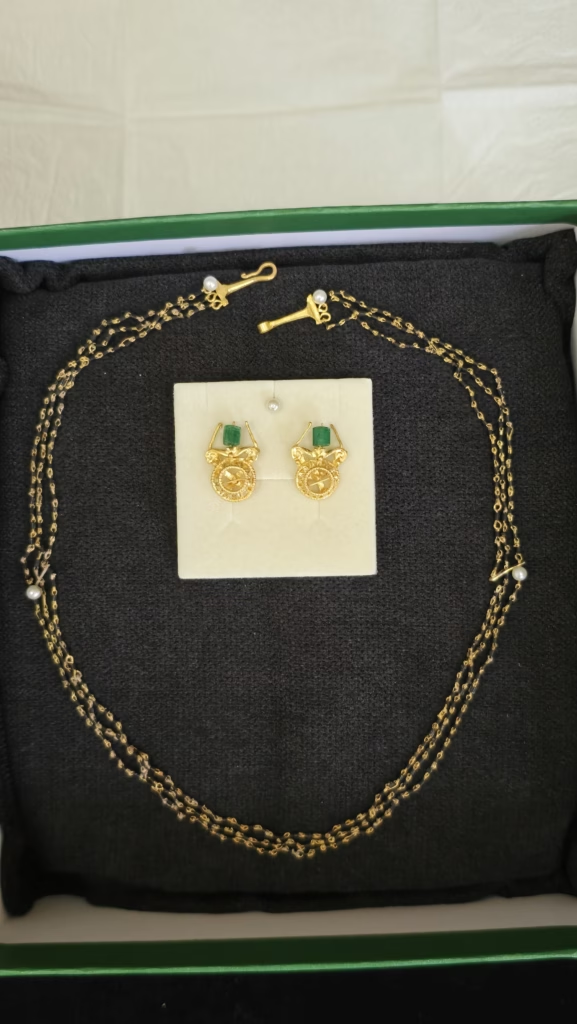
Although the diatreta was not found completely intact, the remaining fragments still reveal its artistic and historical value. The artifact will undergo detailed analysis and conservation work before being added to Montenegro’s cultural heritage collection.
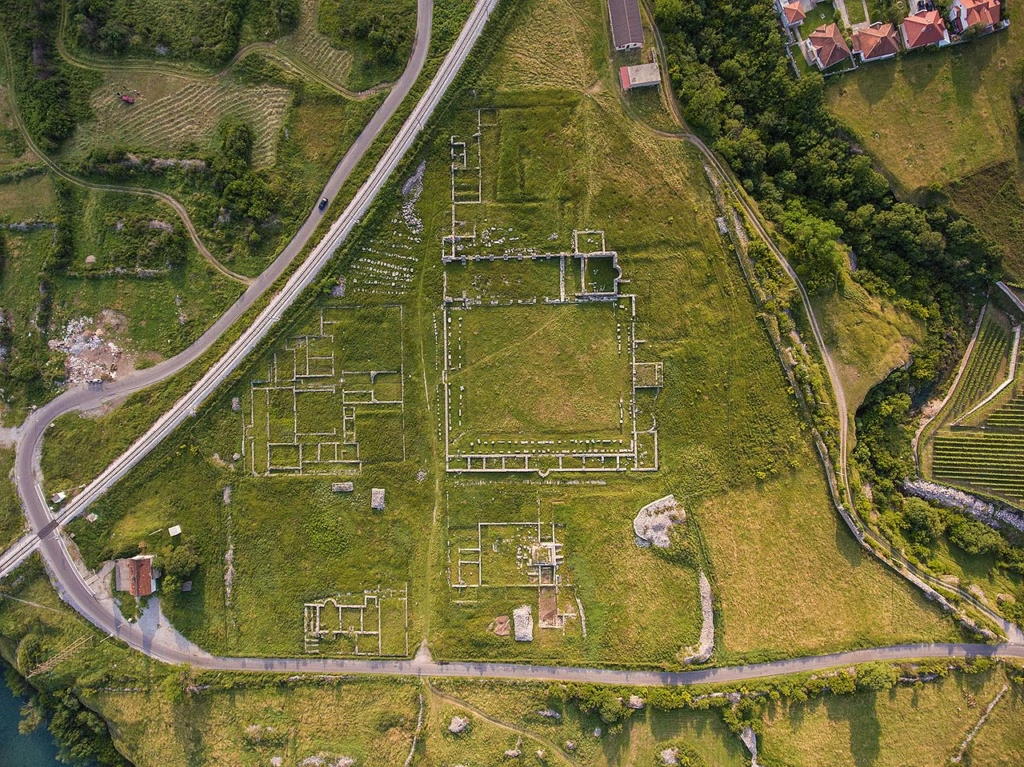
Doclea: A Shining Star of the Roman Era
Founded in the 1st century AD and active until the early 7th century, Doclea was one of the most important cities in the province of Dalmatia. To date, over 180 graves have been unearthed in the necropolis, each offering remarkable insight into life and burial practices during the Roman period.
Cover Image Credit: Courtesy of Miloš Živanović, head of excavations at the ancient city of Doclea.




